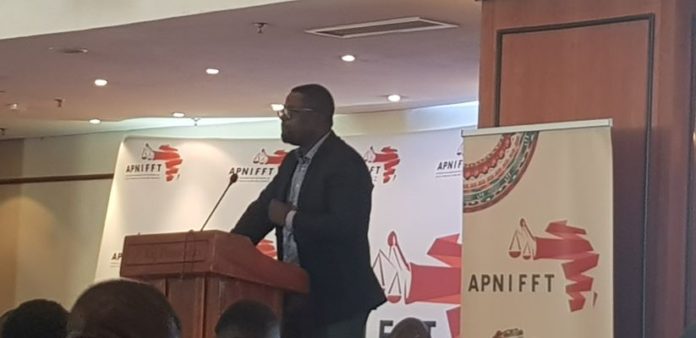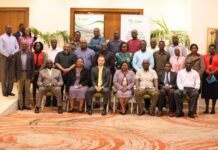An estimated 350 million Africans, chiefly women and girls are at high risk of food security spurred by a combination of climatic change effects, COVID 19 pandemic, conflicts and the rising fuel prices caused by surging Russia-Ukraine, a call for collaboration to ensure food security, notes a think tank.
Research findings by Open Society Foundation shows glaring concerns of disruptions in food security on the continent with women and girls likely to be the hardest hit, often eating last and least, heightened by a combination of conflict, climate shocks like drought in East Africa and poor rains in West Africa.
Other factors threatening the continent’s food security and needs a unity of purpose to reverse the trend is a possible and dramatic rise in displacement, lingering COVID 19 impacts, and most recently, surging food and fuel prices aggravated by the conflict in Ukraine (ICRC).
Titus Gwemede, the Open Society Foundation, Division Director, Opportunity and Equity, in his address to the just ended conference for African Parliamentary Network on Illicit Financial Flows and Taxation (APNIFFT) in Lusaka themed: “Tax Justice Amid Multiple Crises: A legislative Lens”, calls for oneness among policy makers on the continent for a lasting solution.
Policy makers are challenged to rethink policy formulation and devise durable, lasting solutions and favorable responses and strategies to drive the post-pandemic recovery particularly in regions prone to instability, conflict, and those at the worst risk effects of being enveloped in climate change.
While national and multilateral policy makers should strive to alleviate the drivers of such crises, they should strive to prepare their countries, adapt and recover from complex shocks, arguably, try to build resilience of African states to resist exogenous shocks.
The challenge paused calls for unwavering quality and determined leadership to respond to shocks across multiple domains through adaptations and built resilience in a concerted manner to alleviate the drivers of such crises to delay their effects on the already fragile and highly indebted economies.
The pandemic has presented policymakers with daunting, interlinked, and often unprecedented challenges and unless redressed fairly and squarely more victims, chiefly women, girls and children are likely to be drawn in the dragnet.
“Women and girls are hit hardest, often eating last and eat least. They face extraordinary dangers to get food, and yet, too often have to risk getting assaulted in order to feed their family” he told delegates.”
The Ukraine crisis has had a huge impact on food prices but these are fueled by long-standing inequalities and failures in the global food system. Equally the COVID-19 pandemic and the climate crisis have deeply harmed the ability of poor people and poor nations to cope. Between April 2020 and December 2021, wheat prices had increased by 80 percent.
Across all countries – as food and energy costs spiral – it is the poorest and most marginalized people who are faced with the most desperate choices.
Women and girls are hit hardest, often eating last and eat least. They face extraordinary dangers to get food, and yet, too often have to risk getting assaulted to feed their family.
However, the Open Society Foundation has options for Africa to overcome the effects of the challenges and that there is still room for the continent to survive so long leaders confront the challenges in a solution based manner.
Gwemede urges a united continental lobby for creditors to consider cancelling, rescheduling, restructuring sovereign debt for debt-distressed African countries and allow the affected governments’ sufficient fiscal space to respond to the current crisis, in compliance with human rights standards.
Evaluate and assess tax incentives and exemptions being given to non-essential corporations using a cost-benefit analysis to scrap any wasteful tax breaks (tax incentives for Tanzanite?!). Raise corporate income taxes (CIT) rates (Windfall taxes too). – a “race to the top” targeting profitable businesses, and incorporating progressivity in the Corporate Income Tax (CIT).
Effective implementation of a fine-tuned African Continental Free Trade Area (AfCFTA) and the African Union’s productive transformation agenda can strengthen regional value chains, reduce vulnerability to external shocks, advance the digital transition, and build economic resilience against future crises as a contingency measure.









